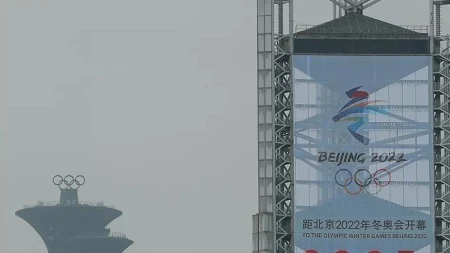Beijing 2022: China recognizes that the Omicron variant will complicate the organization of the Winter Olympics
The holding of the event, scheduled from February 4 to 20, could be complicated by the development of the new variant of Covid-19, according to the Chinese government.
 |
| The Linglong Tower in the Olympic Park in Beijing, host of the next Winter Olympics. -CNSPHOTO / IMAGINECHINA VIA AFP- |
China, through the Ministry of Foreign Affairs, recognized Tuesday, November 30 that the new variant Omicron would be synonymous with additional difficulties for the organization of the Winter Olympics in Beijing, scheduled for February 4 to 20 next. But no official concern in the country where the pandemic began.
Some "challenges in the fight against the epidemic"
"It will certainly bring some challenges in terms of fighting the epidemic. But China has experience in this area and I am fully confident that the Winter Olympics will be held without worry," Zhao Lijian, a spokesman for the Chinese Ministry of Foreign Affairs, told reporters.
While the Chinese borders are practically closed since March 2020, the Beijing Games will take place in a sanitary bubble from which the 2,900 expected athletes cannot leave. They will have to be either vaccinated or submit to a 21 days quarantine at their arrival. All will be subject to daily screening tests. Only spectators residing in China will be able to attend the events.
The holding of the event had already been questioned by the United States, but for other reasons. The American government had envisaged, Thursday November 18, a "diplomatic boycott" of the Games of Beijing to protest against the violations of the human rights in China.
The Omicron variant has not yet been detected in the country, except in the autonomous territory of Hong Kong.




